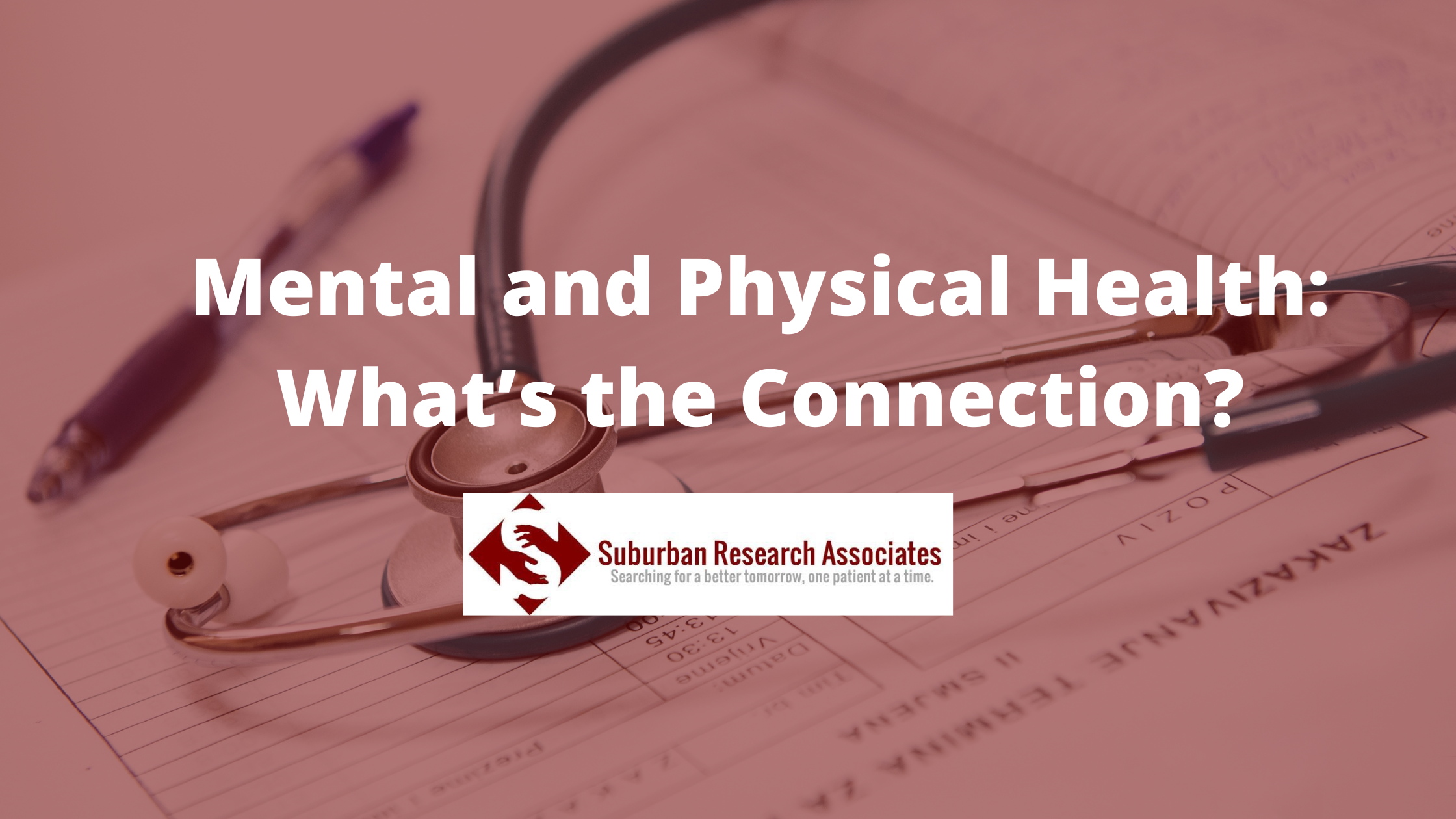What does it really mean when we say that mental health and physical health are interconnected, and why is it so important?
These questions are multi-layered and go beyond what a single article can cover, but to put simply, our mental health can have a powerful impact on our bodies, and our physical health can have a powerful impact on our brain. To visualize what this might look like, take a moment to think of this scenario: In a high stress situation, you might feel a wide variety of emotions and sensations. In your mind, you might experience racing thoughts, panic, fear, nervousness, etc. At the same time, your body might feel tense, your heart might start beating faster, and you may feel hot or cold. These are examples of how our brains and bodies are working together simultaneously, especially in moments of stress or high emotion.
This is not necessarily a bad thing. In fact, these processes are actually designed to allow our bodies to adjust and adapt to various circumstances and environments as needed. When you are in a high stress situation, those bodily sensations of increasing heart rate, etc., are preparing you for that scenario. If these mechanisms were not in place, it could cause your brain and body to shut down completely. Have you ever noticed that you feel exhausted after something really stressful? That is likely because at the time of that stress, your body was working in overdrive to make sure you were adequately equipped physiologically to handle that stress. When it finally has a moment to breathe afterwards, you start to feel that impact. Pediatrician Nadine Burke Harris explains these types of sensations in her Ted Talk exceptionally well.
Bruke-Harris also explains how while these mechanisms are put in place for survival and adaption, they can sometimes become counter-productive when your body is working in overdrive like this often. Those mechanisms are intended to be used on occasion and as needed. When the body is put into overdrive on a daily basis, you will likely start to feel burnt out, both physically and mentally. This is where the body starts to impact the mind as that burn out might lead you to feel more stressed, anxious, or tired. On the other hand, when our minds are in overdrive as mentioned briefly above, this can impact the body because the mind is constantly telling the body that it needs to prepare for stress, anxiety, fear or whatever the case may be. Starting to see the connection between the two?
So, what can be done to keep the mind and body in as much balance as possible?
- Take Breaks: It is easy to get caught up in our busy lives that sometimes we forget to take a break. Even taking 5 minutes to breathe, take a walk, or do something you enjoy can give the mind and body a break from working so hard.
- Meditation and Deep Breathing: Meditation and deep breathing are often underrated and dismissed. Even if meditation is not your thing, deep breathing is something you can do anywhere- at your desk, in the car, etc. Reminding yourself to take deep breaths throughout the day can be more powerful than we realize in preventing our bodies and brains from going into overdrive.
- When it doubt, let it out: When you are feeling overwhelmed, letting it out one way or another can help tremendously. Whether it is talking to a friend, writing in a journal, or going to therapy, these can be a great release.
- Moving around: Movement is another thing that is essential for both the mind and body. It not only keeps us physically active and healthy, but also sends positive messages to our brains.
- Talk to a therapist or your doctor: If things feel more out of place than usual and you just can’t seem to shake it, seek out therapy or discuss how you have been feeling with your doctor. Sometimes impacts on the mind and body that feel out of our control can be a sign of a larger underlying issue. Addressing these things early is a key to keeping your mental and physical health in balance.
Bottom Line
You now have a brief snapshot into how the mind and body are connected in a very general sense, and how you can maintain your physical and mental health. While these topics are becoming more widely known every day, they are still something that many are not yet truly aware of and educated on yet. Sharing this article for awareness can help bring topics like this to the surface and may help others who are in similar situations!
References:
Burke Harris, N. (2014, September). How childhood trauma affects health across a lifetime. (2014). TEDMED. https://www.ted.com/talk /nadine_burke_harris_how_childhood_trauma_affects_health_across_a_lifetime?language=en


